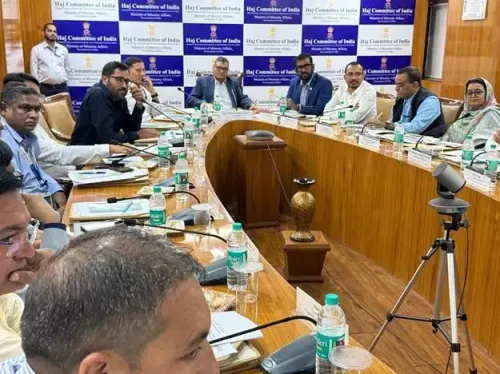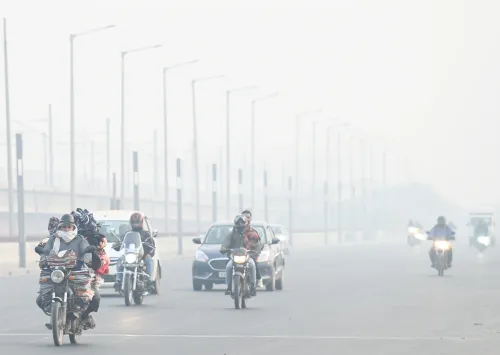Has ISI Increased Its Efforts to Create White-Collar Modules by Targeting Indian Students Abroad?

Synopsis
Key Takeaways
- ISI is targeting Indian students abroad to radicalize them.
- Students in medicine and engineering are prime targets.
- White-collar terrorists often evade detection.
- Monitoring efforts extend to international educational institutions.
- Radicalization poses a significant threat to India's security.
New Delhi, Nov 22 (NationPress) Intelligence agencies are alerting the public regarding a significant rise in radicalization efforts throughout the country. While the promotion of extremism has been a persistent issue in India, these agencies express concern over attempts to radicalize a substantial number of individuals and establish white-collar modules similar to the one dismantled in Faridabad.
Authorities emphasize that the challenge extends beyond radicalizing professionals within India; Indian students studying abroad have also become prime targets.
Agents from the ISI are specifically focusing on Indian students overseas, intending to radicalize them. Many of these students are expected to return to India post-education, and those who have been influenced pose a significant threat, as stated by an official.
An official from the Intelligence Bureau highlighted that their monitoring is not limited to domestic cases but also includes activities occurring internationally.
The ISI particularly seeks students enrolled in medical and engineering programs. This trend indicates that operatives based in Pakistan are increasingly targeting students from these fields. White-collar terrorists are often more dangerous due to their professions, which provide them with a façade that allows them to operate unnoticed.
Furthermore, these individuals possess advanced skills in navigating the web, which facilitates discreet communication and planning.
Information received by the agencies indicates that the ISI has formed a team dedicated to identifying Indian students who have enrolled in engineering or medicine programs in countries like the US, UK, Germany, and Australia.
Moreover, officials are scrutinizing the backgrounds of approximately 12,000 students who were studying medicine in Bangladesh during the protests in 2024 that resulted in the removal of Sheikh Hasina.
Following Hasina's ousting, the student faction of Jamaat-e-Islami, known as Islamic Chatra Shibir (ICS), launched a significant initiative to identify, radicalize, and recruit Indian medical students, according to an official.
The ISI has also established connections with various extremist clerics worldwide to target Indian students and instill radical ideologies. Their goal appears to be preparing these individuals to act upon their return to India.
The ISI is working to create modules similar to the one that was active in Faridabad. Indian intelligence agencies are concerned that comparable modules may be developing, involving students who are currently studying abroad. While the Faridabad module was dismantled, it had been quietly functioning since 2001, with communications remaining secure and planning conducted in a highly discreet manner.
Members of the Faridabad module communicated solely through encrypted messaging platforms or during hospital interactions. They even strategized during their time at university and in their hostels, which are typically regarded as low-risk areas by intelligence agencies.
These individuals would engage in late-night discussions about their plans, cleverly disguising them as academic conversations intended for collaborative study. During these discussions, they would delve into logistics and reconnaissance.
With the dismantling of the Faridabad module, the ISI recognizes that scrutiny on such activities has intensified. To evade detection and prevent further disruptions, the ISI has shifted its focus to Indian students studying abroad, hoping to have them establish similar modules upon their return, as noted by an official.
Another official pointed out that Bangladesh currently faces the highest level of scrutiny. This is attributed to the ecosystem the ISI has cultivated in collaboration with Jamaat to radicalize Indian students, particularly in medical colleges.









